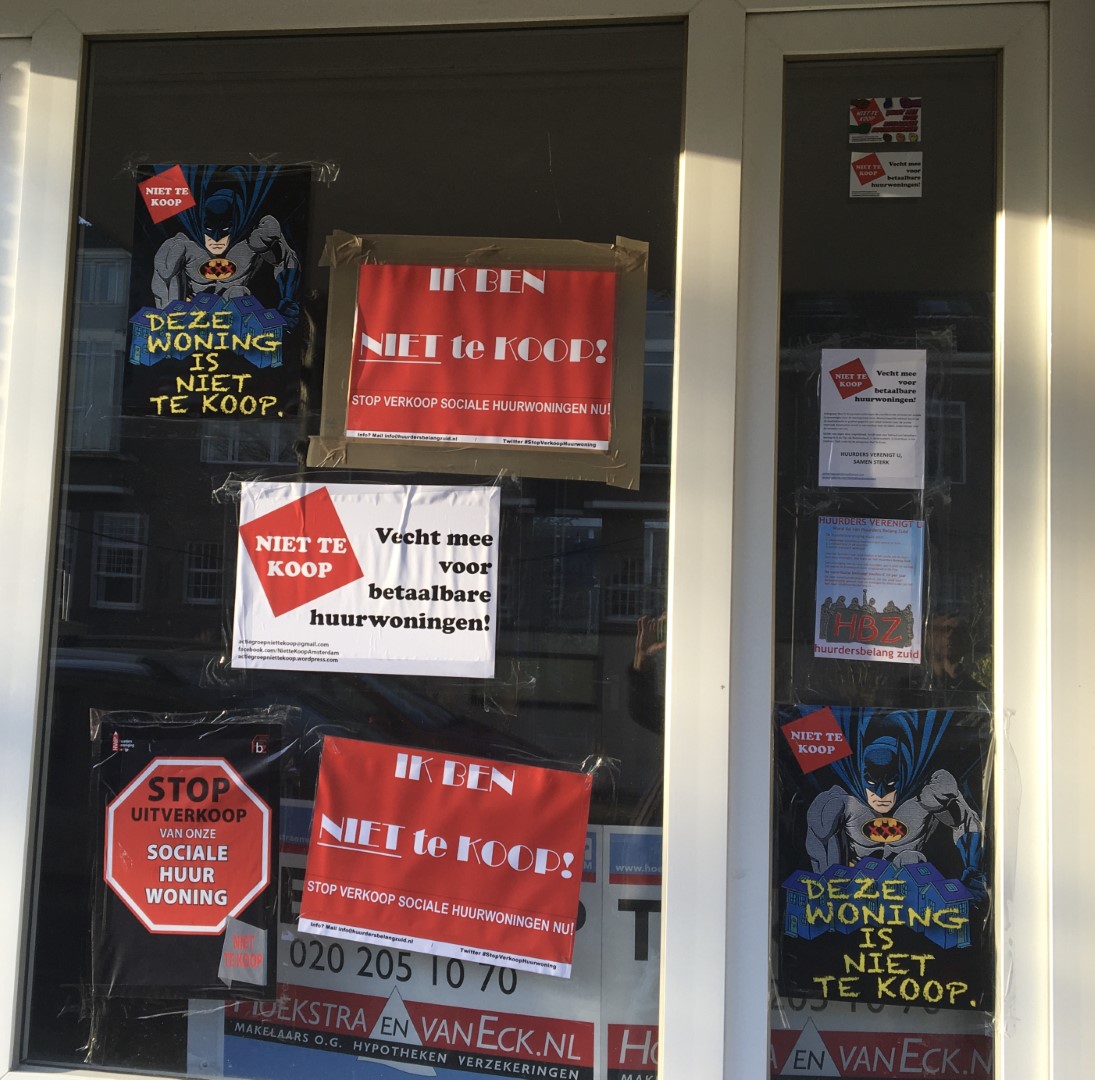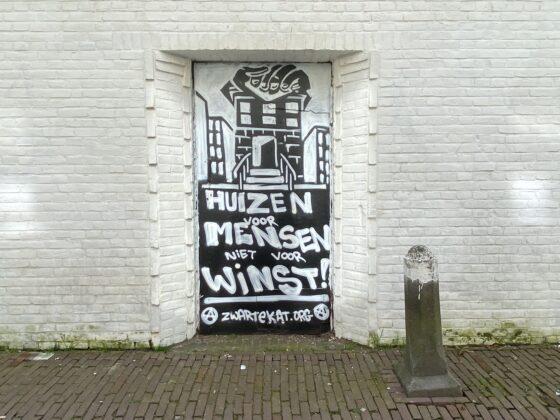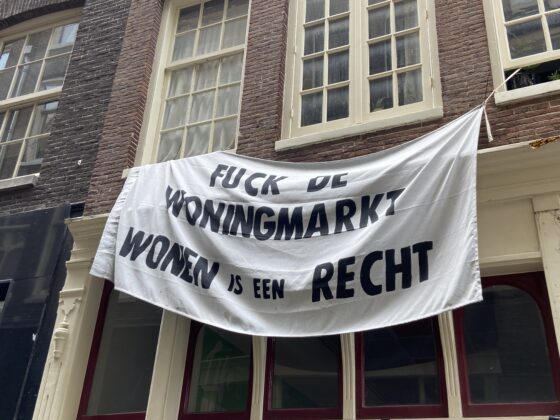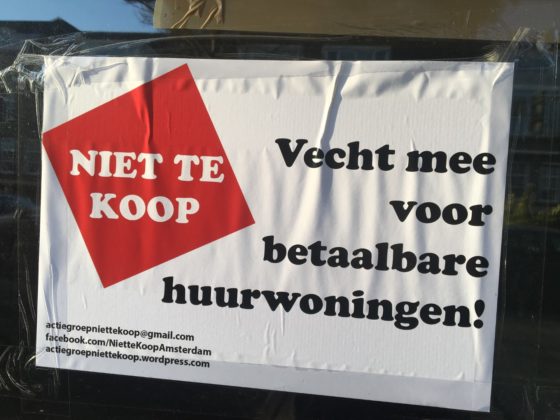The big election issues: tackling the housing crisis
Robin Pascoe
The Netherlands goes to the polls on October 29 to elect a new government. We asked you what issues you wanted us to cover, and housing was one of the top five.
Housing is the biggest issue in the Netherlands ahead of the October 29 election, even though it came second to the cost of living crisis in the Dutch News poll. Nevertheless, the shortage of both rental homes – across all price ranges – and properties to buy remains one of the main concerns for the country’s international community.
House price rises appear to be slowing, but the average home still costs almost €500,000 – and considerably more in the big cities, especially Amsterdam. The supply of social housing has almost dried up, the mid-market rental sector is shrinking as small landlords sell off their properties, and prices in the free sector are soaring.
At the same time, the Netherlands faces an estimated shortage of 400,000 homes, and the outgoing government has failed to meet its target of building 100,000 new homes a year. Here’s how the top six parties in the polls plan to tackle the problem:
VVD: boosting home ownership and scrapping rental restrictions
The VVD has made protecting mortgage tax relief one of the central planks of its election campaign, despite growing calls to phase it out.
The party wants to end the housing shortage by focusing on 30 large-scale new developments nationwide and “build, build, build”. Councils that break construction records will receive a financial bonus to invest in more housing projects.
The VVD says it will cut unnecessary rules. “We are backing people looking for a home, not bats and professional complainers,” the manifesto states. The goal is to shorten the time needed to build a new home from 10 years to two.
The party wants to scrap plans to extend rent controls to more properties, lift the ban on short-term rental contracts and make it easier to share or sub-divide existing homes. Housing corporations would also be allowed to raise rents for tenants whose incomes are too high for social housing.
GroenLinks–PvdA: more social housing and tighter rent controls
“More homes for people to live in” tops the GroenLinks-PvdA online manifesto.
The alliance wants new housing developments to include at least 40% rentals of up to €900 a month and 30% rentals up to €1,200 or affordable owner-occupied homes costing no more than €405,000.
Like other parties, GroenLinks–PvdA wants to speed up planning procedures and says farmland, disused industrial sites and even airports can be used for new housing.
The party plans an “offensive” to make housing healthier and more energy efficient, introduce new limits on rent rises, and cut rents for poorly insulated homes. It also promises better protection against excessive rents.
A new type of non-profit housing corporation would be created, exempt from profit tax, and a government loan scheme would help finance new developments.
The alliance wants to phase out mortgage tax relief over 12 years and use the extra income to cut income tax.
D66: phasing out mortgage tax relief and building 10 new cities
Like its potential coalition partner GroenLinks–PvdA, D66 wants to phase out mortgage tax relief over 12 years. The extra revenue would go towards lowering income tax across the board, which the party says would offset the impact of the change.
D66 is banking on support for the construction of 10 new cities to tackle the housing shortage. These, according to the D66 manifesto, would combine affordable homes to buy, mid-range rentals, social housing and accommodation for both young and elderly residents, allowing people to stay within their community as their needs change.
The party wants better use of existing buildings through conversion or adding extra floors, with a strong focus on good public transport and cycling links. Councils would get more powers to buy and develop land, curb speculation and speed up objections procedures.
Local authorities would have to ensure at least 30% social housing in new developments, with clear allocation rules to keep communities mixed. First-time buyers would find it easier to get a mortgage, as student debt would no longer count, while high earners in social housing would pay market-based rents.
Landlords would be required to improve poorly rated properties, and sustainability upgrades should not increase tenants’ monthly costs.

CDA: building whole new neighbourhoods
Housing is one of the key priorities in the CDA manifesto. The Christian Democrats say they are “putting people looking for a home first” and want new building projects to add “not one street but a whole neighbourhood”.
The party pledges to build 100,000 homes a year to ease pressure on the housing market and help young people stay in their own towns and villages. It also wants to use the existing housing stock more efficiently by allowing more than two unrelated adults to share a home without a permit, adding rooftop extensions and sub-dividing existing properties.
The CDA wants to cut red tape around new housing developments and make it harder to delay projects through legal challenges.
To keep housing affordable, it would retain the current rent control system but speed up energy-efficiency upgrades in rental homes. Councils would also be allowed to prioritise new housing for local residents and people in key professions such as teaching and healthcare.
The CDA also supports reducing mortgage tax relief, but over a 30-year transition period.

PVV: no priority for refugees or toads
The 40-page PVV manifesto contains two pages of housing plans, including a 10% cut in social housing rents next year. Geert Wilders also wants to raise the income threshhold for social housing and cut the taxes paid by housing corporations.
The PVV plans to expand the supply of affordable rental and owner-occupied homes – with “plenty of room for a car” – by simplifying planning rules, scrapping sustainability requirements and lifting restrictions protecting endangered species. It calls it “a scandal” that some projects have been delayed by “frogs, toads and snails”.
The PVV says local authorities should no longer be required to house refugees, and the media park in Hilversum – home to the public broadcasters – should be turned into a housing estate.
The party does not plan to phase out mortgage tax relief and would allow people to live permanently on holiday parks.

JA21: a massive building programme and no homes for refugees
JA21, the far right party on target to win around 13 seats, has three thoughts on housing in its online manifesto. The party wants to build affordable housing on a “massive” scale, get rid of sustainability rules and allow construction despite nitrogen restrictions.
It also aims to stop local property taxes and ground rent being “exploited” by local authorities.
Limiting immigration will reduce the pressure on the housing market, the party says. In line with the PVV, it wants to stop any priority for refugees and scrap the law requiring local authorities to house them at all.
Other parties
The NSC, ChristenUnie and Volt all want to extend subsidies for house building programmes and cut taxes for housing corporations to free up funds for new construction.
Volt also wants to move owner-occupied homes into box 3, where they would be taxed as assets.
ChristenUnie proposes phasing out mortgage tax relief over 15 years, while Volt wants to end it within the next cabinet period – or four years.
Still to come in this series: climate and the environment, healthcare, the cost of living and immigration
Thank you for donating to DutchNews.nl.
We could not provide the Dutch News service, and keep it free of charge, without the generous support of our readers. Your donations allow us to report on issues you tell us matter, and provide you with a summary of the most important Dutch news each day.
Make a donation